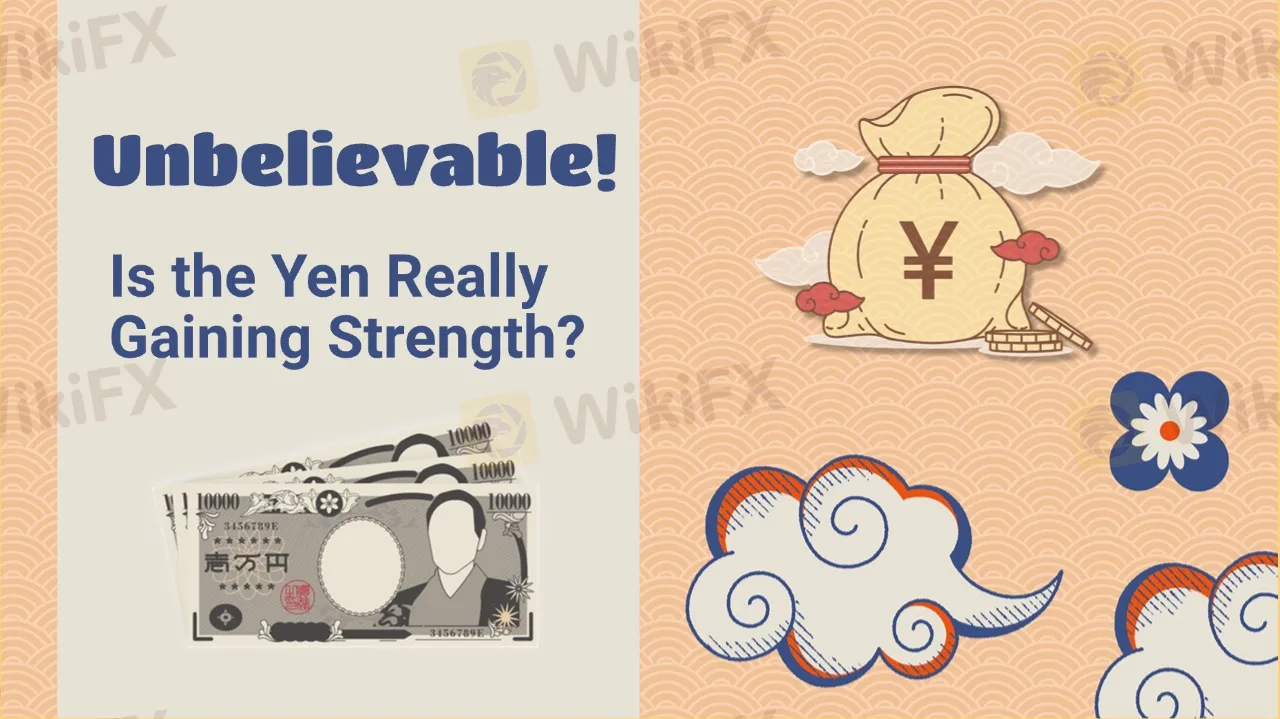简体中文
繁體中文
English
Pусский
日本語
ภาษาไทย
Tiếng Việt
Bahasa Indonesia
Español
हिन्दी
Filippiiniläinen
Français
Deutsch
Português
Türkçe
한국어
العربية
Unbelievable! Is the Yen Really Gaining Strength?
Abstract:Recently, the yen exchange rate has once again broken through the 150 yen per U.S. dollar mark, sparking heated discussions about its appreciation.

Despite speculative investors aggressively buying yen and driving its value higher, the strong demand for the U.S. dollar seems to be restraining this trend. Can the yen truly sustain its strength this time?
Speculative Forces Driving Short-Term Gains
In recent weeks, the foreign exchange market has seen an influx of speculative capital. According to data from the U.S. Commodity Futures Trading Commission (CFTC), speculative investors' net long positions in the yen have reached near-record levels, with overall long positions swelling to unprecedented heights. However, this wave of yen buying is primarily driven by short-term market expectations and has yet to establish a solid foundation for long-term appreciation.
Can the Yen Maintain Its Strength?
Despite the yen‘s recent gains, the market remains skeptical about its long-term strength. The Bank of Japan has yet to initiate a clear rate hike cycle, while the interest rate gap between Japan and the U.S. remains close to 4%, making yen holdings costly. Additionally, Japan’s “digital trade deficit” continues to expand, exceeding 6 trillion yen annually. Meanwhile, Japanese investors are increasingly allocating funds to overseas assets, further fueling demand for U.S. dollars and limiting the yens potential for sustained appreciation.
Overall, the yen‘s rise may be a temporary phenomenon, and it could eventually return to a depreciation trend. Investors should closely monitor the Bank of Japan’s policy moves and global capital flows to determine the yens true trajectory.
Disclaimer:
The views in this article only represent the author's personal views, and do not constitute investment advice on this platform. This platform does not guarantee the accuracy, completeness and timeliness of the information in the article, and will not be liable for any loss caused by the use of or reliance on the information in the article.
Read more

Gold Breaks $3,300 Barrier—Time to Celebrate or Caution?
Gold hits record high—rally or risk ahead?

FCA Proposes Simplifying Investment Cost Disclosure for Retail Investors
FCA plans to cut “imprecise” transaction cost disclosures for UK investment products, making cost info clearer and easier for retail investors.

WeTrade Secures CySEC License to Expand EU Trading Services
WeTrade secures a CySEC license, allowing EU-wide operations. The approval boosts services, partnerships, and trust across the global trading community.

Elites Gather in Taipei to Forge a New Forex Ecosystem
On April 19, the exclusive cocktail party hosted by WikiFX Elites Club concluded successfully in Taipei. The event brought together local forex industry leaders, seasoned experts, and elite practitioners to discuss industry trends and share cutting-edge insights. It fully demonstrated WikiFX’s irreplaceable value as a globally leading forex investment ecosystem platform in gathering industry wisdom and driving sector development.
WikiFX Broker
Latest News
eXch Exchange to Shut Down on May 1 Following Laundering Allegations
How a Viral TikTok Scam Cost a Retiree Over RM300,000
FCA Proposes Simplifying Investment Cost Disclosure for Retail Investors
JT Capital Markets Review
Fresh Look, Same Trust – INGOT Brokers Rebrands its Website
Think Scams Won’t Happen to You? That’s Exactly What Scammers Count On
Beware of Gold Bar Investment Scams: Rising Threats
Finalto Teams Up with Alphaville for 2025 London Quiz
Elites Gather in Taipei to Forge a New Forex Ecosystem
Kraken Launches Forex Perpetual Futures on Kraken Pro Platform
Currency Calculator


